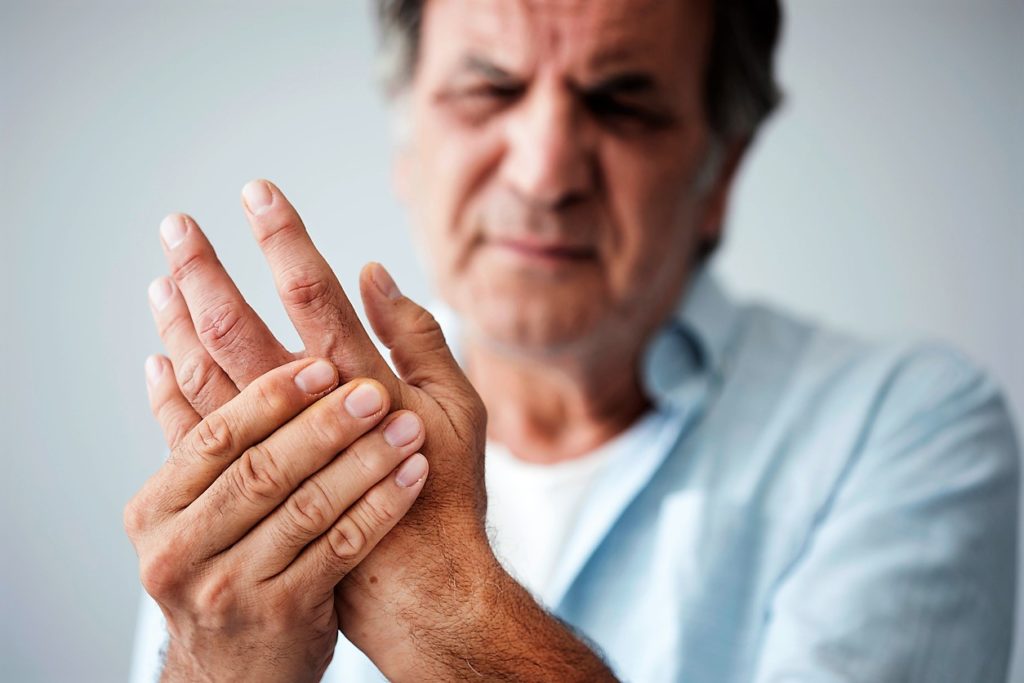Five Tips To Help Prevent And Manage Arthritis

Not only do they wear you down with gnawing pain, but they restrict your ability to do things that once you took for granted. The pains can affect your mood as chronic pain causes frustration and even depression.
Arthritis
There are more than 100 forms of arthritis, the condition often responsible for joint pain. The most common form of arthritis is osteoarthritis, often suffered in older people due to wear and tear on the joints. Rheumatoid arthritis is an autoimmune disease in which the body’s own immune system attacks the body’s joints. Gout is a form of inflammatory arthritis that occurs when an excess of uric acid leads to the formation of uric acid crystals in the joints, triggering painful attacks. All types of arthritis cause pain in different ways.
The more weight you gain, the more probable it is that you will develop osteoarthritis. There are twice as many cases in overweight men, and three times as many cases in overweight women. Gout is closely linked to obesity, about 70% of people with gout are overweight and 14% are obese. The risk of developing gout increases with how overweight a person is, for example, an overweight person is likely to develop gout 11 years younger than someone of a normal weight. Years and years of wear and tear on the joints are only exacerbated by carrying more weight. An obese person has a 60% greater chance of getting arthritis than people who maintain a healthy body weight.

Diagnosing Arthritis
Being overweight increases the load that you put on your joints – your knees, your hips, your ankles – with every step you take. When you walk, or go up or down stairs, you can put three to five times your body weight on the joints. That’s a huge amount of stress if you’re overweight e.g. 30 pounds overweight would put 90-120 pounds extra stress on your knees and hips. Fortunately, the same principle works in reverse.
A 2005 study in, Arthritis and Rheumatism, of overweight and obese adults with knee osteoarthritis found that losing one pound of weight resulted in four pounds of pressure being removed from the knees. Therefore, losing ten pounds of weight would relieve forty pounds of pressure from the knees.
The results of a 2010 study from the University of Paris published in, The Annals of Rheumatic Disease, indicated that weight loss can lessen pain, improve pain and lower inflammation levels in the body. Fat itself is an active tissue that creates and releases pro-inflammatory chemicals. These inflammatory chemicals exacerbate the pain of osteo and rheumatoid arthritis.
People with rheumatoid arthritis need to watch their diet and exercise as the disease process changes their body composition, favouring more fat and less muscle. This fat often locates around the abdomen (visceral fat) which is a risk factor for heart disease and insulin resistance.
The authors of another study titled, Effects of Exercise and Physical Activity on Knee Osteoarthritis, noted that exercise, which aids in weight loss, can help manage and lessen the pain and symptoms of Arthritis (if done consistently).
In gout, studies have shown that even losing a small amount of weight can lower uric acid levels, and losing more weight has an even bigger effect on reducing uric acid.
There is no other single action that can provide as many positive effects on the body as weight loss. Not only living longer, but enjoying a greater quality of life, pain and disease free, far outweighs the challenges of working towards weight loss. Lasting physical and mental health are what everyone needs to enjoy each day to the full, regardless of anything outside of them.
People with arthritis face an increased risk of becoming depressed. In a 2015 study published in the journal, Arthritis, researchers found that among people with osteoarthritis who needed joint replacement surgery, the risk of depression rose with the number of joints affected. Those who had six or more painful joints were more likely to have depression than those who had pain in only one joint.
Chronic pain can on its own increase stress and anxiety but arthritis can take an emotional toll by limiting the ability to do things that you once took for granted.
Follow these five tips to help maintain lower body weight, ease pressure on your joints and stay positive:
- Restore blood sugar balance by reducing your sugar intake. Hypoglycemia is a condition caused by not eating regularly enough and leads to overeating. Avoid this by eating every 3 to 4 hours and including a source of protein at each meal.
- Aim to keep moving. Little and often is the best strategy, short daily walks and non-weight bearing exercises like swimming where joints are supported. It’s important to keep your joints moving and your muscles strong. The stronger the muscles which support a joint, the less pain you’re likely to have in that joint. Our bodies are designed to move, so not doing so is harmful to the tissues around the joint.
- Have people to talk to. A good social support network can give you better coping skills as well as helping to keep your mood lifted. Good friends will also support you in practical day to day tasks that you might struggle with on your own.
- Make sure to get 7-9 hours sleep per night. A study published in the journal Arthritis Care and Research 2015 found that people who didn’t get sufficient sleep had increased levels of osteoarthritis knee pain. Avoid alcohol and caffeine, have a bath, and practice relaxation techniques if you find getting to sleep difficult.
- Try to eat oily fish to help joints stay lubricated. Arthritis is a disease of inflammation – swollen joints which are warm to the touch and red/pink in colour. As well as anti-inflammatory medical prescriptions, you can add anti-inflammatory foods to your diet. Essential fatty acids, particularly the kinds found in fish dampen down inflammation on a cellular level before it ignites. The best sources are salmon, tuna, mackerel and sardines, ideally eaten in a serving size of 3 to 6 ounces two to four times per week. If you don’t like the taste of fish it may be worthwhile to take fish oil supplements, however real food is always preferable as you also benefit from the nutrients calcium, vitamin D and selenium.

